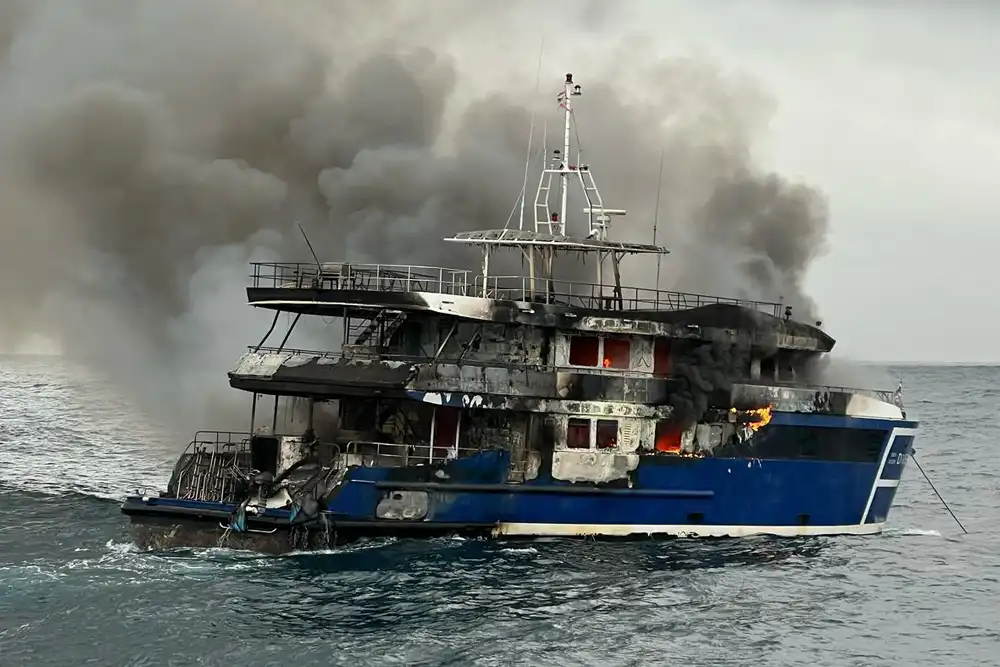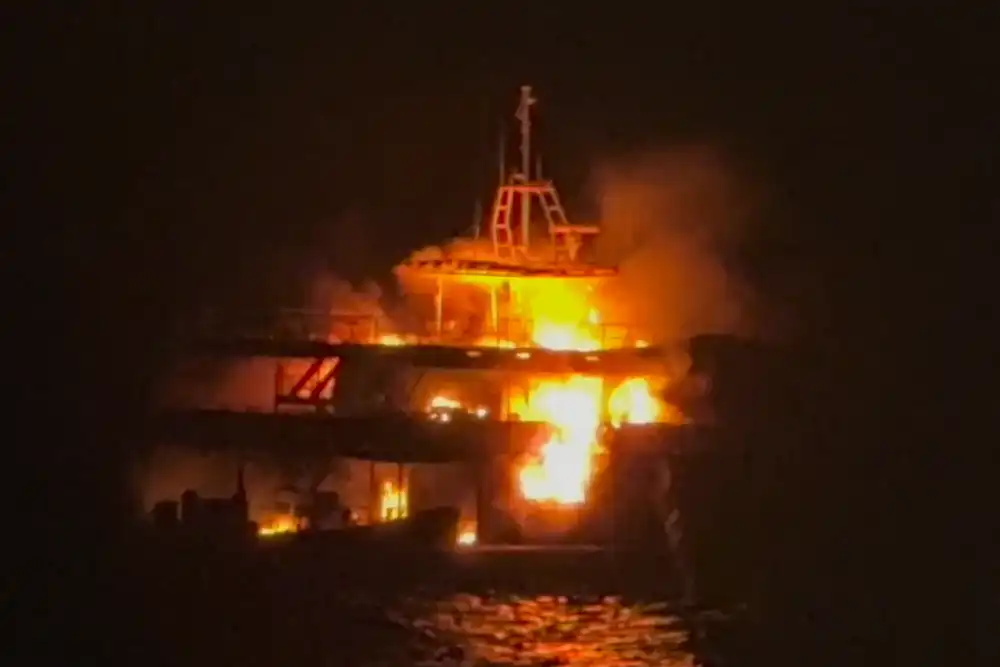Food and cleanliness is excellent.
Water, softdrinks, juices, coffee, tea and snack (sweet and savory) are available all the time with no surcharge. Alcohol is not available, at least when i was there.
Full CCR and Trimix support, two zodiacs with robust and stable ladders and the boat has s lift. Step on it half submerged and you'll be lifted level to the lower level of the dive deck.
I found it to be very comfortable, altough if you have one of the two cabins that neighbor the engine room, the generators will sing you a lullaby since they run basically 24/7. It didn't bother me and i slept like a rock.
Safety is good, the emergency and dive briefings were very thorough. Life vests and fire extinguishers in every cabin, luggage or gear laying around on the floor is not accepted.
Potential shortcomings:
It's not the biggest boat, so stow your stuff smart and don't run around on the dive deck like a headless chicken
It's also not that cheap. A 7 night trip is around 1000-1200€, that's without cylinders (Al80 twinset 70€/week), Nitrox flatrate (150€) and some other small stuff.
But again, no limits regarding time and depth and an awesome crew, well worth it imo.
If they have no depth or time limits on dives, how do they schedule the dives during the diving day? Wouldn't people who stay longer underwater delay the rest of the diving day's schedule?






